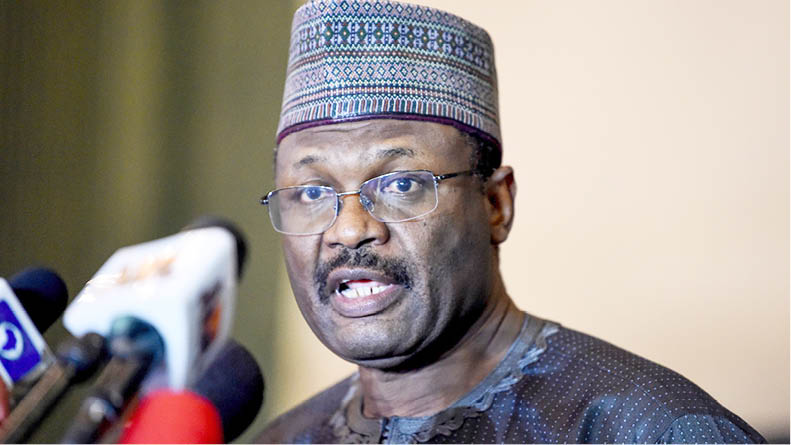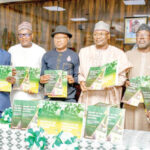By Nick Dazang
After teetering on the brink during the conduct of the Anambra governorship election, made uphill by security challenges and the Federal Capital Territory (FCT) Area Council Elections, bedeviled by logistics difficulties, the ever resilient Independent National Electoral Commission (INEC), finally got its mojo back on Saturday, 18th, 2022 during the conduct of the Ekiti governorship election.
Independent and credible observer groups such as the Centre for Democracy and Development (CDD), YIAGA-AFRICA and the Situation Room were unanimous in their assessment that the election was generally peaceful, that majority of Polling Units (PUs) opened on time and that the Bimodal Voter Authentication System (BVAS) worked optimally to the delight and relief of stakeholders – political parties, contestants, voters, the media and observers.
Let Northern zones bargain with Atiku, Tinubu
The Ekiti governorship election stood out for a number of outstanding reasons: The election came hot on the heels of the keenly contested primaries by all the 18 registered political parties. The election took place within the context of the new Electoral Act, 2022, and the newly issued Regulations and Guidelines for the conduct of Elections. The guidelines are a further elaboration of how the 2023 General Elections will be conducted. The election took place under the deployment of technology and its robust fortification by the law. Technological innovations such as the BVAS and the INEC Election Results Portal are now on solid legal premise with the advent of the Electoral Act, 2022.
Following the dismal voter turnout in the Anambra governorship election, the Ekiti governorship election recorded an impressive voter turnout of 39.03 per cent. Above all, the election was a litmus test and it was meant to give us a foretaste of what we should expect in the Osun governorship election and the 2023 general elections.
Mercifully, the election proved a huge success. It renewed INEC’s winning streak, almost lost in the near debacles of the Anambra governorship and the FCT Area Council Elections.
According to observers and the media, there was a remarkable improvement on logistics. At 7.30a.m. on Election Day, not less than 75 per cent of the Polling Units (PUs) across the state had opened. And at 9.30a.m., accreditation had commenced at 94 per cent of the PUs.
The BVAS was reported to have worked optimally, with a few glitches, thus notching up its functionality to a record 96 per cent across board. Minus a few incidents, the election was acclaimed to be seamless. The voters were said to have comported themselves peacefully and the security agencies were reported to have dominated their environment and secured the election professionally.
If the conduct of the election was tranquil and marked a significant improvement in INEC’s processes, it was tainted by rampant vote buying and selling. And this ugly trend was allegedly perpetrated by the three leading political parties in the contest in varying degrees and according to the depth of their pockets.
The widespread vote buying, derisively described as “see and purchase voting technology” by one wag, was said to have ranged from N5,000 to N15,000. The CDD-EAC reported that it witnessed not less than 41 cases of vote buying in Ado-Ekiti, Ijero, Ikole, Irepodun/Ifelodun, Ire/Òrún and Moba local government areas. In a video, made viral by Adeyanju Deji, an activist, a voter who allegedly compromised himself unabashedly revealed: “I sold my vote for 5k because of the future, I know the money is small. It can’t rent a house or even buy a bed but I am happy I sold it.”
Even though officials of the Economic and Financial Crimes Commission (EFCC) arrested a few perpetrators, an example should be made of them to serve as a deterrent to others. But the rampant manner in which vote buying and selling took place and across the board of the three major contending parties speaks eloquently to the fact that the phenomenon transcends a menace: It represents a clear and present danger to our elections. Apart from the fact that it sullies the integrity of our elections, it also has the capacity to subvert the wishes of the people.
In a situation where vote buying is rampant, as it happened in the Ekiti and FCT elections, the outcomes may not necessarily reflect the true intent or wishes of the people. This has the propensity to frustrate voters. It also has serious implications for voter apathy and the delivery of good governance. Where the wishes of the people are frustrated, they may not be keen on voting in subsequent elections. And where it is not the correct person that emerges, depending on his/her pedigree, he/she might not be inclined or obligated to deliver the dividends of democracy to the people. As this writer has argued in the past, and this is fast becoming a refrain, anyone who buys his/her way to power is more likely to concern himself/herself with using the office to recover his/her expenses and to accumulate even more money in order to perpetuate himself/herself in office. In other words, elections are morphing into businesses/enterprises and the pre-occupation of election winners is not to deliver good governance or improve the weal of the people but to enhance the comfort of the self. Also, any voter who demeans himself/herself by selling his/her vote, in the course of an election, needs to appreciate that he has automatically lost his/her right to demand good governance or to hold elected officials to account.
As INEC continues to hone and perfect its processes ahead of the 2023 General Elections, attention must be focused on the menace of vote buying and selling if our democracy is not to become shambolic or an outright ruse.
Dazang is a former Director at the INEC.

 Join Daily Trust WhatsApp Community For Quick Access To News and Happenings Around You.
Join Daily Trust WhatsApp Community For Quick Access To News and Happenings Around You.


